Dutch Firm’s Solar City Car Offers Affordable Mobility Option
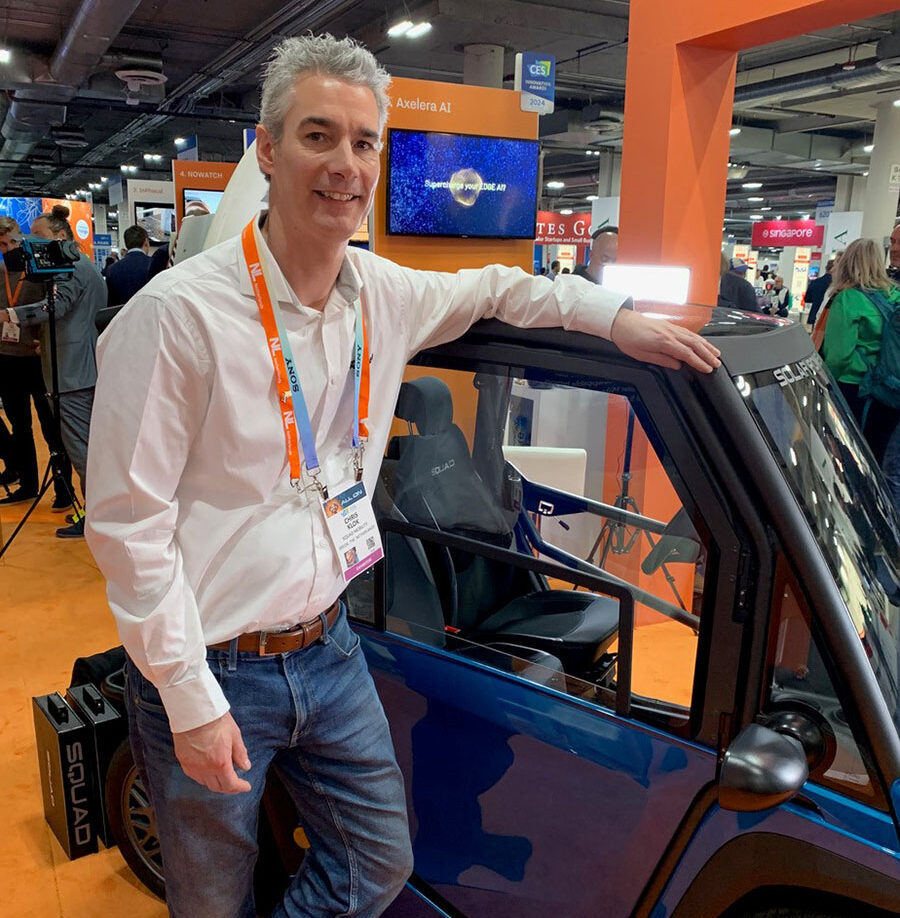
Micro vehicle features a self-charging solar panel roof
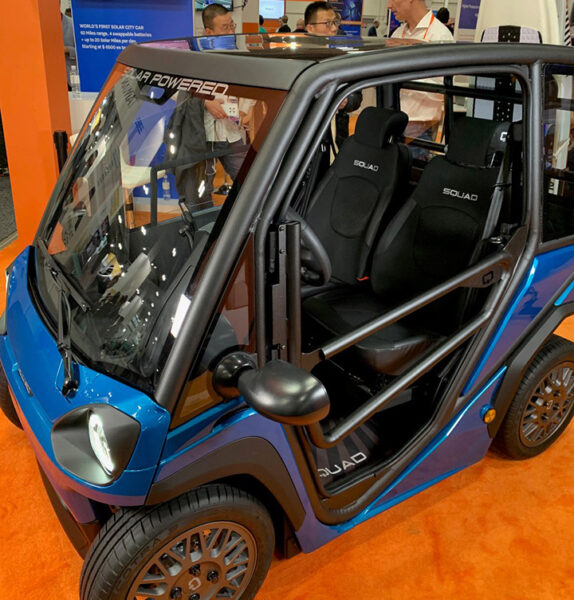
The vehicle has uses ABS body panels to help lower costs and minimize scratches and dents. Squad is offering pre-orders in the U.S. starting at $6,250. Photo by Robert Grace
Dutch startup Squad Mobility BV displayed at CES 2024 what it calls “the world’s first solar buggy” –– a compact, affordable solar city car that charges itself through an integrated solar panel on the roof. It comes with swappable batteries as a power backup.
In an interview Chris Klok, the firm’s co-founder and chief design officer, explained Squad’s materials strategy: “We use an approach mostly seen in motorcycles –– a visible tubular frame completed with polymer body panels. The chassis is aluminium because many of our clients are living on islands or near the coast, so corrosion is an issue. Since we want our vehicles to last very long, we opted for aluminium, which also helps reducing the mass.”
Plastic body panels
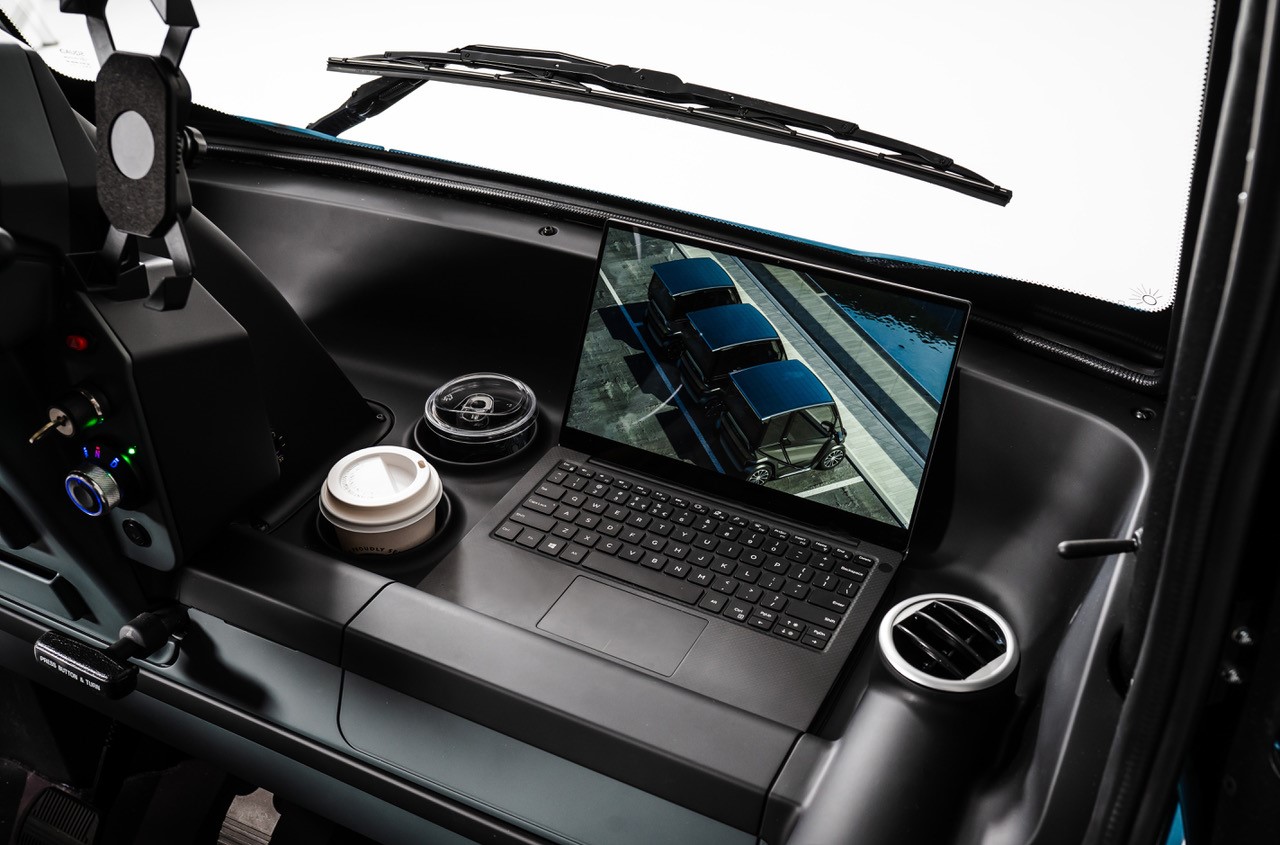
Klok and his team have worked to include user-friendly features on the vehicle’s interior, such as cupholders and a laptop pad. Courtesy of Squad Mobility
Started in 2019 by Klok and CEO Robert Hoevers, Squad uses ABS resin for the injection molded body panels, because it does not dent and it helped to lower the price. “The base version of the Squad is through-colored with only a transparent top layer,” Klok said. “This allows our clients (in particular fleet owners) to replace damaged panels with factory-delivered panels without requiring a layer of new paint. Also, scratches will not be very visible, something that is important in car sharing use-cases.”
The vehicle’s interior needs to be highly durable. Since Squad delivers the vehicle without doors (a configuration often used on campuses and in sunny climates), the interior had to be UV resistant and waterproof. This, he said, requires materials different from those traditionally used in automotive interiors. He and his team are still assessing material options, including those used in boats and yachts.
Tapping into the U.S. market
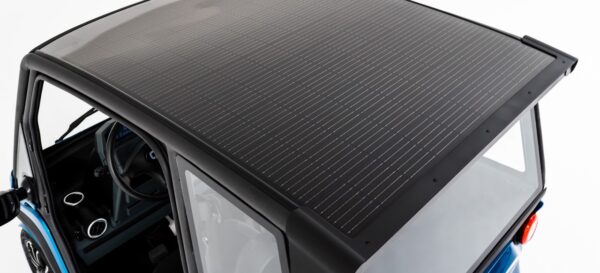
The car’s solar roof, shown up close here, can provide enough of a charge to satisfy the daily driving requirements of most urban drivers. Courtesy of Squad Mobility
In a release, Hoevers stated: “We are seeing a tremendous interest from the United States, specifically for markets such as golf cart communities, (company) campuses, sharing platforms, hotels and resorts, amusement parks and inner city services.”
Squad announced in Las Vegas that its cars will be available in the United States in 2025, with a base price of $6,250 (excluding tax). They are taking pre-orders now. Its two-seater model was on display in The Netherlands Tech pavilion at the show, but Squad also is planning a 4-seater and a slightly longer cargo version. In the U.S. and Canada, the maximum allowable speed for most such micro low-speed vehicles is roughly 25 mph.
Adequate range for city use
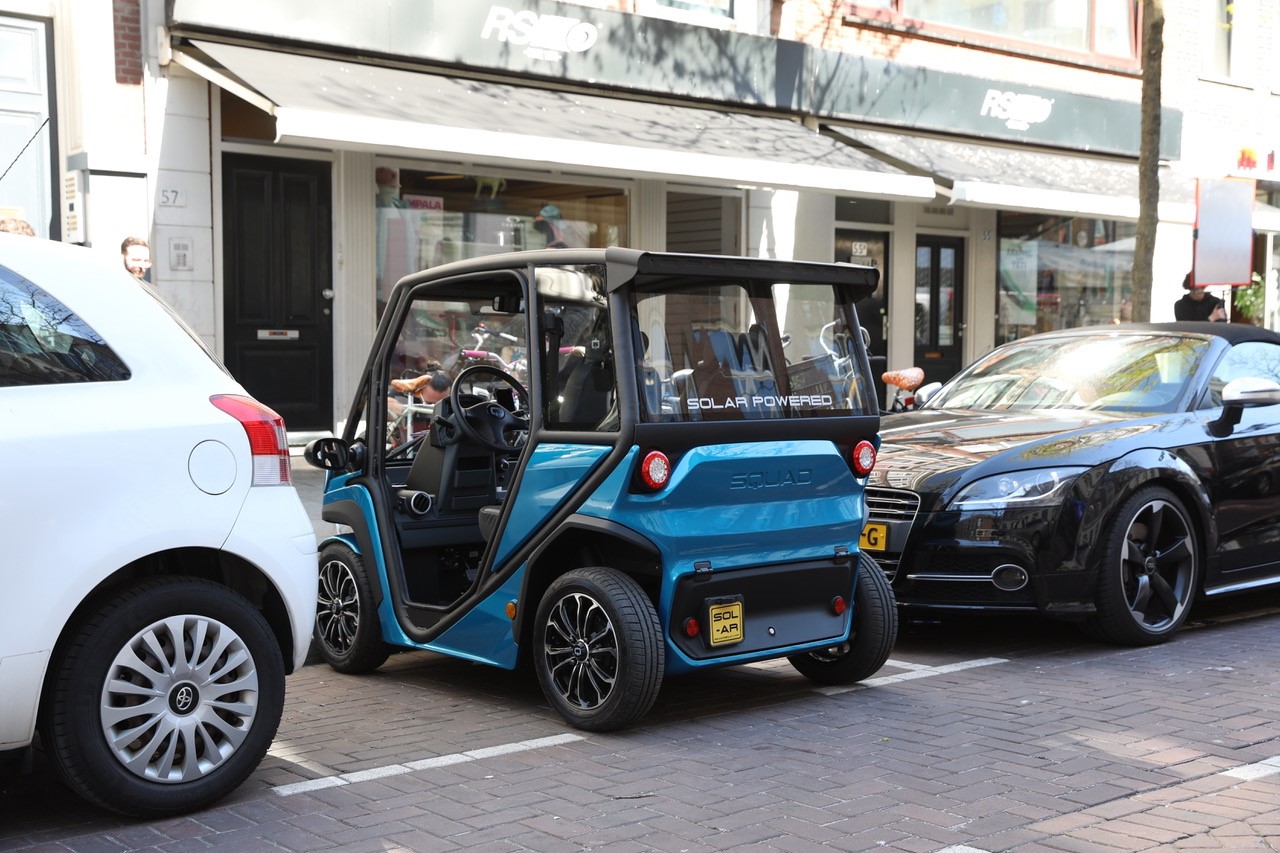
The car’s small footprint enables it to cross-park easily in tiny spaces. Courtesy of Squad Mobility
In a press release the firm said, “The vehicle’s solar panel charges up to 22 km (13.6 mi.) extra range on sunny days in the Netherlands and up to 31 km (19.2 mi.) in Las Vegas. The four swappable and portable batteries provide a range of 100 km (62 mi.), excluding solar.” With an average solar range of 13 miles per day in many U.S. cities, they suggest that most users will find that charging is not even necessary.
Squad noted that it is actively looking for potential distribution and manufacturing partners in the U.S. and around the world. It has an ambitious strategy that involves the creation of microfactories around the world, including at least one each in North America, Europe and Asia in the foreseeable future. Eventually, Squad would like to have eight to 10 such facilities worldwide.
Developing a microfactory strategy
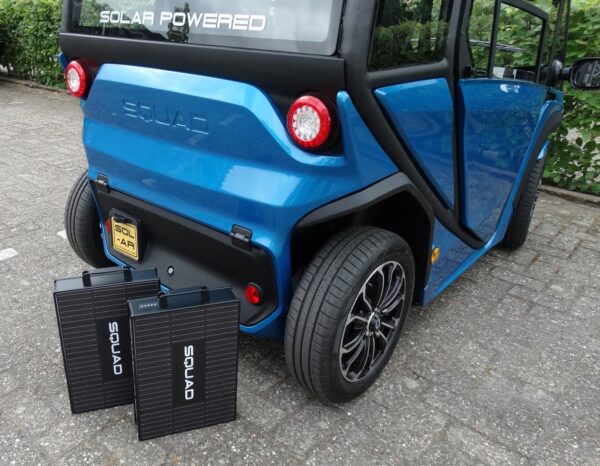
The vehicle also has portable, swappable batteries as a backup power source, if needed, on top of solar and a traditional charge plug. Courtesy of Squad Mobility
“Our microfactories,” said Klok, “are meant to reduce logistics (cost as well as hassle), and we think it is important our vehicles get local content. Components come from all over the world and get transported to the factories while they are still compact (flat pack/crates). Once assembled the vehicle contains a lot of air, so transport from that moment on is more cumbersome. The factory will be responsible for assembly (including local variations where needed) and build quality, as well as logistics to the customers.”
Additionally, he said, Squad’s microfactories will double as spare parts hubs, which is important for after-sales and customer satisfaction. “We foresee that each microfactory can produce 10,000 to 15,000 vehicles per year. Each factory will be based on the same blueprint and quality systems to ensure efficiency.”
Easy to park
Noting that as a mobility solution Squad bridges the gap between cars and two-wheelers, Klok stresses that their vehicles are easy to operate, drive and park. With a footprint of just under 26 square feet, one can cross-park three Squads in a single parking spot.
By providing energy generation, storage and usage in a single product, Klok says, the Squad offers “independence, comfort and freedom.”
